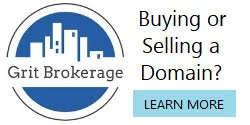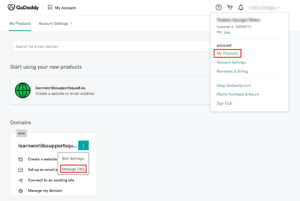Hey there, curious minds! Today, we’re diving deep into the fascinating world of domain names and uncovering the impact of an often overlooked character: the underscore. Yes, that little line that sits below the letters, quietly making its mark. So, grab your virtual magnifying glass, because we’re about to embark on a journey of exploration and discovery.
When it comes to domain names, we’re used to seeing combinations of letters, numbers, and hyphens. But what about the humble underscore? It may seem insignificant, but it has the potential to make a big splash in the vast ocean of the internet. In this article, we’ll uncover the mysteries surrounding the use of underscores in domain names and explore how they can affect search engine optimization (SEO) and user experience. So, buckle up and get ready for an enlightening ride!

Exploring the Impact of Underscore in Domain Names
The use of underscores in domain names has been a topic of debate and discussion among website owners and SEO experts. While some believe that underscores can negatively impact search engine optimization (SEO) and user experience, others argue that they can be used effectively in certain situations. In this article, we will delve into the impact of underscores in domain names and explore their pros and cons.
The Pros of Using Underscores in Domain Names
Underscores have been used in domain names for various reasons. One of the main advantages is that they can make domain names more readable and user-friendly. For example, if you have a domain name like “best_coffee_shop.com,” it is clear and easy to understand that the website is related to a coffee shop. Underscores can help separate words in the domain name and make it more comprehensible for users.
Another benefit of using underscores is that they can potentially improve the visibility of keywords in domain names. Search engines like Google consider keywords in domain names as a ranking factor. By using underscores to separate keywords, you can make them more prominent and increase the chances of your website ranking higher for those specific keywords. This can be especially useful for businesses targeting niche markets or specific geographical locations.
Improved Readability and User Experience
Underscores can enhance the readability and user experience of a domain name. When words are separated by underscores, it becomes easier for users to understand the purpose or topic of a website. This can lead to higher click-through rates and increased engagement, as users are more likely to click on a domain name that clearly conveys what the website is about.
Additionally, underscores can help prevent domain name confusion. If you have a domain name like “my_best_diet.com,” it is clear that the website is related to dieting. On the other hand, a domain name like “mybestdiet.com” might be interpreted differently, leading to confusion among users. By using underscores, you can eliminate any ambiguity and ensure that your domain name is easily understood by visitors.
Keyword Visibility and SEO Benefits
Keywords play a crucial role in SEO, and having them in your domain name can give you an advantage in search engine rankings. Underscores can help separate keywords and make them more visible to search engines. For example, if you have a domain name like “luxury_resorts_hawaii.com,” search engines will easily recognize the keywords “luxury resorts” and “Hawaii.” This can improve your chances of ranking higher for those specific keywords and attract targeted organic traffic to your website.
Moreover, using underscores in your domain name can help with anchor text optimization. Anchor text is the clickable text in a hyperlink, and search engines consider it as a relevancy signal. When other websites link to your domain using anchor text that includes underscores, it reinforces the relevance of your website for those specific keywords. This can positively impact your SEO efforts and improve your website’s visibility in search engine results pages (SERPs).
In this article, we have explored the impact of underscores in domain names. While there are potential benefits in terms of readability, user experience, and SEO, it is important to consider the potential drawbacks as well. It is essential to strike a balance between using underscores effectively and ensuring that your domain name remains user-friendly and easy to remember. Ultimately, the decision of whether to use underscores in your domain name should be based on your specific goals and target audience.
The Cons of Using Underscores in Domain Names
While there are advantages to using underscores in domain names, there are also potential drawbacks that need to be considered. One of the main concerns is that underscores can create readability issues, especially in printed materials or when domain names are shared verbally. For example, if you have a domain name like “best_clothing_brand.com,” it may be difficult for users to remember or type correctly without the underscore.
Another disadvantage of using underscores is that they can cause issues with link sharing and backlinking. When sharing a domain name with underscores, there is a higher chance of the link being broken if it is not formatted correctly. Additionally, some websites and platforms may not recognize underscores as valid characters in URLs, leading to compatibility issues. This can impact the overall user experience and hinder the success of your website.
Readability and User Experience Challenges
The use of underscores in domain names can create challenges in terms of readability and user experience. When a domain name includes underscores, it may require users to pay closer attention to the characters and the placement of the underscores. This can lead to confusion and potential errors when typing or sharing the domain name. Additionally, underscores can disrupt the flow of the domain name and make it less intuitive for users.
Furthermore, underscores can be problematic when it comes to verbal communication. If someone wants to recommend your website to a friend or colleague, they may struggle to convey the domain name accurately if it includes underscores. This can result in lost opportunities for traffic and hinder the growth of your online presence.
Link Sharing and Backlinking Issues
The use of underscores in domain names can also pose challenges when it comes to link sharing and backlinking. Some websites and platforms may not recognize underscores as valid characters in URLs, leading to compatibility issues. This can result in broken links or URLs that do not direct users to the intended webpage. Broken links can negatively impact user experience, as visitors may encounter error messages or be unable to access the desired content.
Additionally, when other websites link to your domain, the presence of underscores can make it more difficult for them to create backlinks correctly. This can affect your website’s SEO efforts, as backlinks are an important factor in search engine rankings. If other websites struggle to create accurate links to your domain due to underscores, it can potentially hinder your website’s visibility and organic traffic.
In conclusion, while there are advantages and disadvantages to using underscores in domain names, it is crucial to weigh the potential benefits against the challenges they may present. Consider your target audience, user experience, and SEO goals when deciding whether to include underscores in your domain name. Ultimately, the goal is to create a domain name that is both user-friendly and optimized for search engines.
Key Takeaways – Exploring the Impact of Underscore in Domain Names
- Underscores in domain names can cause confusion for internet users.
- Search engines may not interpret underscores correctly in domain names.
- Underscores are not recommended for use in domain names.
- Using hyphens instead of underscores is a better practice for readability.
- Domain names with underscores may not rank as well in search engine results.
Frequently Asked Questions
1. How does using an underscore in a domain name impact search engine optimization?
Using an underscore in a domain name can have negative implications for search engine optimization (SEO). Search engines like Google tend to interpret underscores as word separators, rather than as part of a word. This means that a domain name with an underscore may be treated as two separate words, potentially impacting the relevance and ranking of the website in search results.
Furthermore, underscores can make it difficult for search engine algorithms to accurately parse and understand the domain name. This can lead to decreased visibility and lower organic traffic to the website. It is generally recommended to avoid using underscores in domain names for better SEO performance.
2. Are there any specific guidelines for using underscores in domain names?
While it is generally advisable to avoid using underscores in domain names, there are no strict guidelines against their usage. However, it is important to consider the impact on search engine optimization and user experience. If you do choose to use an underscore in your domain name, it is recommended to keep it to a minimum and use it sparingly.
Additionally, it is important to ensure that the domain name remains easy to read, memorable, and brandable. It should also be free from any confusion or ambiguity that may arise from the use of underscores. Overall, it is best to follow the industry best practices and avoid using underscores if possible.
3. Can using underscores in a domain name affect user experience?
Yes, using underscores in a domain name can potentially impact user experience. When users see a domain name with underscores, it may create confusion and make it harder for them to remember and type the URL correctly. Underscores can also make domain names appear less professional and credible.
In addition, using underscores may cause issues with mobile devices and touchscreens, as it can be more difficult to accurately tap on an underscore compared to a hyphen or no special characters. To provide the best user experience, it is generally recommended to opt for a domain name without underscores.
4. What are the alternatives to using underscores in domain names?
Instead of using underscores, it is recommended to use hyphens or no special characters in domain names. Hyphens are treated as word separators by search engines and are generally more SEO-friendly. They also make domain names easier to read and type for users.
If hyphens are not suitable for your domain name, you can consider using camel case, where the first letter of each word is capitalized without spaces or special characters. This can help improve readability and maintain the integrity of the words in the domain name.
5. Can I change my existing domain name that includes underscores?
Yes, it is possible to change your existing domain name that includes underscores. However, it is important to carefully plan and execute the change to avoid negative impacts on your website’s SEO and user experience.
Before making any changes, it is recommended to conduct a thorough analysis of your current domain name’s performance and consider consulting with SEO experts. They can guide you through the process of selecting a new domain name, implementing redirects, and ensuring a smooth transition to maintain your website’s visibility and rankings in search engines.
Should I use underscores or hyphens in URLs?
Final Thoughts
After exploring the impact of underscores in domain names, it is clear that they can have both positive and negative effects. On one hand, using underscores can help improve the readability and search engine optimization (SEO) of domain names by making them more easily distinguishable. This can lead to higher rankings on search engine results pages and increased visibility for websites. Additionally, underscores can be used as a way to separate words in domain names, making them more user-friendly and memorable.
However, it is important to consider the potential drawbacks of using underscores in domain names. One major concern is that they can be misunderstood or misinterpreted by users. Underscores can be easily overlooked or mistaken for spaces or hyphens, leading to confusion and potential loss of traffic. Additionally, some search engines may not handle underscores well, potentially impacting the indexing and ranking of websites.
In conclusion, while using underscores in domain names can have its benefits in terms of SEO and readability, it is important to carefully weigh the potential drawbacks. Website owners should consider the specific context and audience of their website before deciding whether to include underscores in their domain names. It is always recommended to follow SEO best practices and conduct thorough testing to ensure the optimal performance and user experience of the website.







